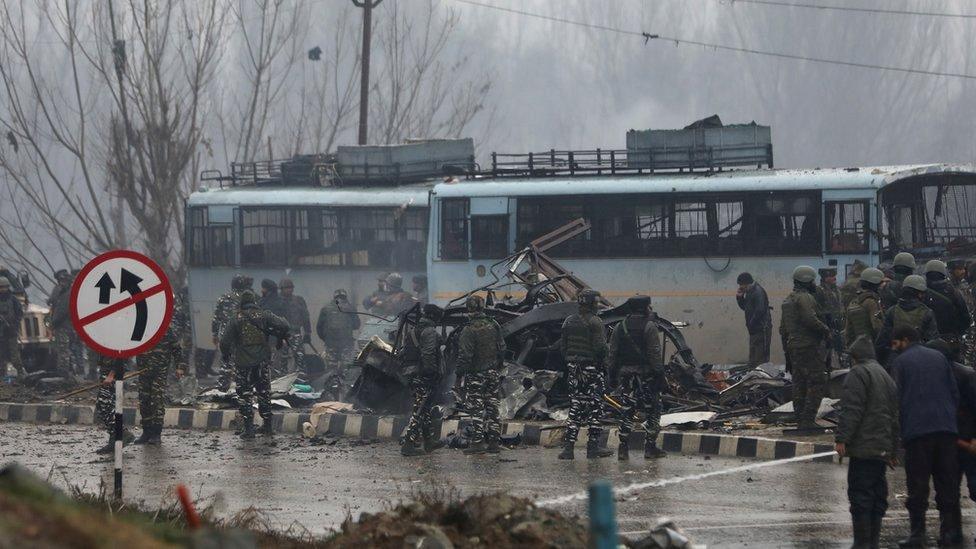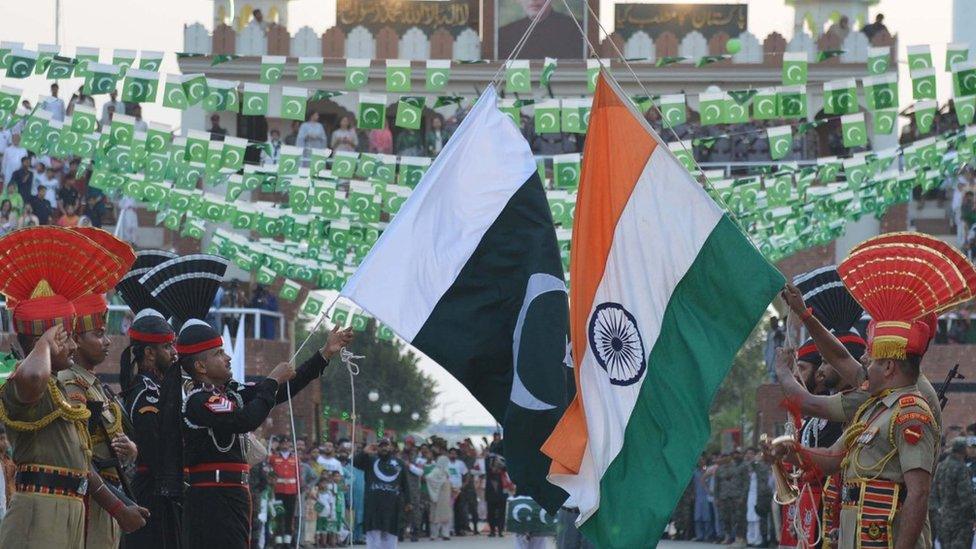Pulwama: Indian soldiers' families still waiting for justice
- Published
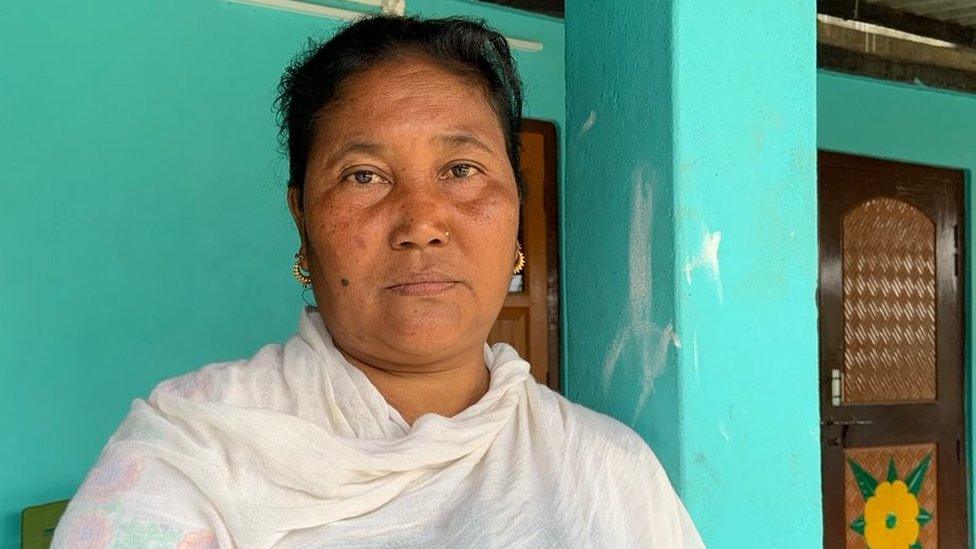
Sanmati Basumatary's husband died in the Pulwama attack
Forty Indian soldiers died a year ago in one of the deadliest attacks on security forces in Indian-administered Kashmir. The suicide bomber drove a vehicle packed with explosives into a convoy of 78 buses carrying Indian paramilitary police in Pulwama. A year later, the families of the soldiers are still looking for answers, BBC Hindi reports.
The attack on the Central Reserve Police Force (CRPF) convoy took place at 15:15 local time (09:45 GMT) on a motorway that connects the cities of Srinagar and Jammu.
With the blame swiftly moving to militants based in neighbouring Pakistan, the attack changed the tenor around the country's general election, for which campaigning was well under way. National security became the plank on which the poll was fought, and many say the attack contributed to Prime Minister Narendra Modi's brute majority.
However, amid widespread national fury, several questions were raised after the attacks.
For instance, why were civilian vehicles allowed on the highway at the same time the convoy was using it? How did intelligence agencies fail to send out any early warnings? Why were the soldiers not moved via aircraft? And why was such a large convoy part of what should have been a routine movement?
The country's National Investigative Agency (NIA) is yet to file charges in the case. It says most of the suspects in the attack have been killed in gunfights with security forces. But it has not answered any of these questions, which the families of the soldiers are also continuing to ask.
CRPF chief Anand Prakash Maheshwari has refused to comment on the investigation.
Indian troops patrol the area where the attack took place
Former CRPF inspector general VPS Panwar said the Pulwama attack was a "big mistake".
But such an admission is yet to come from ministers or security officials and this has made the families of the victims angry.
Ajit Kumar's family in the northern state of Uttar Pradesh say the lack of answers "hurts them".
"We got compensation and that is fine. But we still can't understand why the government is not trying to find out how the attack happened. Who did it, and why? We keep wondering," Mr Kumar's brother Ranjit Azad told BBC Hindi.
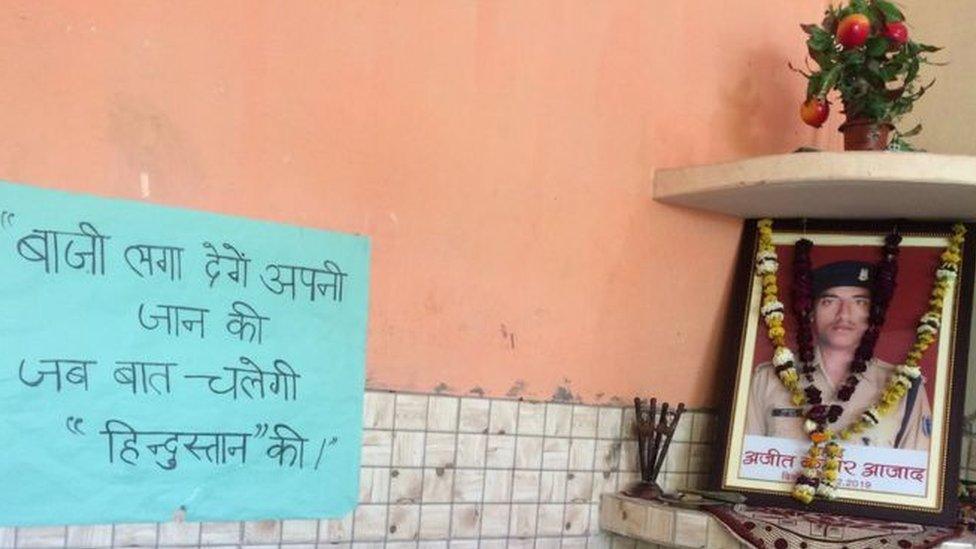
Ajit Kumar was killed in the attack
"Along with other families of soldiers who died, we tried for a while to put pressure on the government to give us the truth. But nothing happened and we eventually gave up."
Ajit's wife, Nirja, said that since her husband died, the government gave her a job - but it requires her to travel 150km (90 miles) every day.
"I somehow manage. But what hurts the most is that the government seems to have just washed its hands off this incident by giving me a job and compensation," she said.
Also in Uttar Pradesh state, Geeta Devi, whose husband Ram Vakil also died in the attack, said she felt the government needed to launch a new investigation into the attack.
"The government needs to tell the public how this happened despite heavy security. I don't understand why the government is quiet," she said.
Maneswar Basumatary's wife, Sanmati, said she would never forget the day she received the news of her husband's death.
"My world will never be the same. The government launched airstrikes inside Pakistan and that gave us some relief," she said.
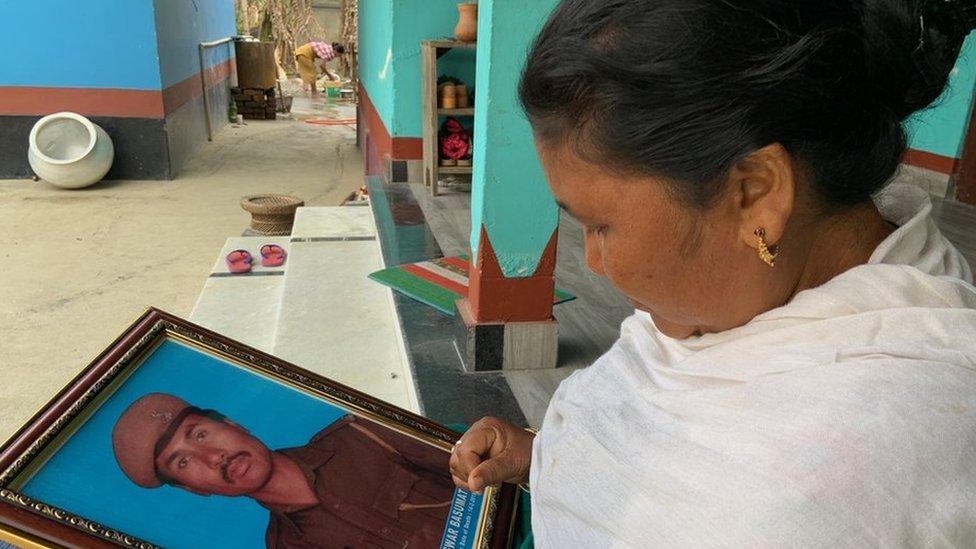
Sanmati Basumatary says she is still looking for answers
She was referring to India's decision to send fighter aircraft into Pakistan in what it said was an operation to destroy the bases of militant group Jaish-e-Mohammad (JeM), who it blamed for the attack.
India also accused the Pakistani government of not doing anything to stop the attack, an allegation the neighbouring country denied.
Ms Basumatary said she would find peace only when she knew the masterminds of the attack had been punished.
Some families of the soldiers have also alleged they are yet to receive the compensation they were promised.
Rohitash Lamba's family, who live in the northern state of Rajasthan, say he was their only breadwinner.
"Everybody came when my husband died. But now nobody comes to ask about our welfare. People have forgotten us. The government had promised that my brother-in-law would get a job but that has not happened," his wife Manju Lamba said.
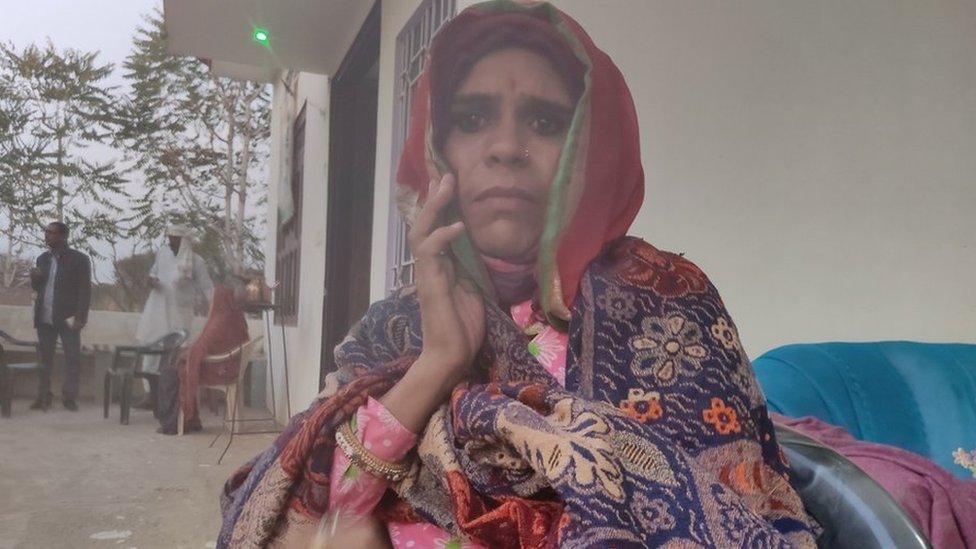
Rohitash Lamba's wife says she is struggling to feed her family
Pratap Singh Khachariyawas is a minister in the state government of Rajasthan and he was one of the several politicians who visited Lamba's family last year.
He acknowledges that the family is struggling.
"We have not been able to give a job to Lamba's brother because of some of technical problem in the procedure," he said.
But Rohitash's Lamba brother Jitendra disagrees.
"We have been meeting ministers and officials for more than a year. A martyr's family doesn't deserve to go through this pain," he said.
- Published1 May 2019
